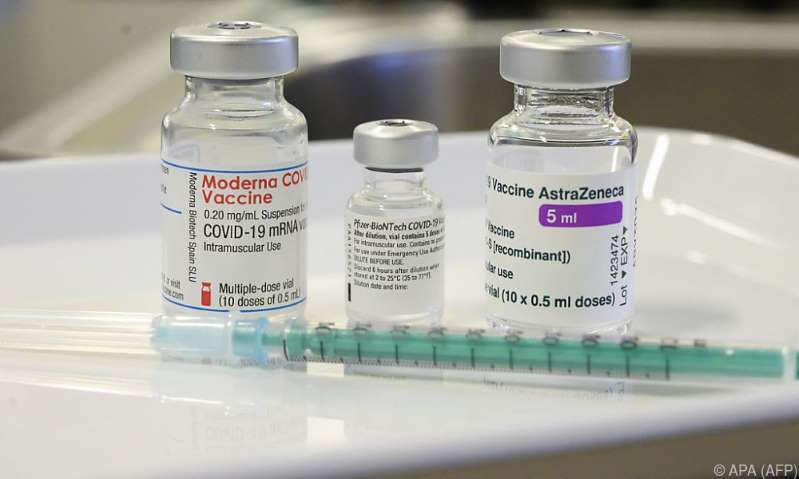According to insiders, the European Union is waiting for ten million doses of the Pfizer / BioNTech corona vaccine, which should have been due in December. This means that around a third of the deliveries expected up to now are still pending, the Reuters news agency learned on Wednesday from EU representatives. The EU Commission negotiated a contract for the delivery of up to 300 million cans from Pfizer's competitor Moderna.

Image: APA (AFP)
So far, Pfizer has delivered around 28 million doses of the vaccine to the EU, one of the representatives and a person familiar with the process said. That was about ten million doses less than Pfizer promised, said the EU representative. Pfizer did not want to comment on the confidentiality of the delivery schedules. No opinion was available from the EU Commission.
BioNTech and Pfizer's Covid-19 vaccine received conditional marketing authorization in the EU on December 21. The following day, BioNTech announced that the companies would deliver 12.5 million cans for the EU by the end of the month. It was reported from EU circles that only a part had been sent in time. On the other hand, the person familiar with the process said that the amount was rather part of the deliveries agreed for the first quarter of 2021. There was initially no explanation for the different schedules.
One of the EU representatives said that the two companies had promised to deliver the missing cans by the end of March. According to reports from European circles, Pfizer had undertaken to deliver 3.5 million cans per week from the beginning of January. Now this week the amount has risen to 4.8 million cans, said an EU representative involved in the negotiations. In the coming and the first week of March, five million cans are then each planned, it was said in the EU circles.
Other vaccine suppliers are now supposed to close the gap. According to a contract signed on Wednesday, Moderna is to deliver 150 million cans this year, with an option for a further 150 million cans for 2022. Commission head Ursula von der Leyen also presented an action plan on Wednesday to combat the dreaded variants of the corona virus. The aim is to have quickly adapted vaccines against the mutated viruses available.
The plan called “Hera Incubator” addresses three points: discovery of the mutated viruses, rapid development and approval of vaccines and expansion of vaccine production in the EU. “New variants of the virus develop quickly, but we have to be even faster in our response,” said von der Leyen.
Last year, the EU Commission initially ordered 160 million vaccine doses from Moderna. The amount that has now been reordered is added. The contract was approved by the College of Commissioners on Wednesday. The EU member states now have a few days to raise possible objections.
The Moderna vaccine is one of three vaccines that are already approved in the EU. The drug authority EMA gave the green light on January 6th. Since then it has also been used in Austria. Like the vaccine from Biontech / Pfizer, it is an mRNA vaccine. Both are more than 90 percent effective.
Compared to the vaccine from Pfizer / Biontech, the Moderna remedy is considered to be somewhat easier to handle, as it does not have to be cooled as much. The manufacturer is based in Cambridge, Massachusetts, but also produces in the EU.
Since the start of the vaccination campaign in the EU on December 27, there has been criticism that too little vaccine is available. With the re-order, the chance increases that the situation will gradually relax. However, Moderna had also indicated delivery bottlenecks at times. The 10 million cans announced for the first quarter are still to be delivered by the end of March.
Moderna's remedy needs two doses of vaccine four weeks apart to be effective. Genetic information about the pathogen is contained in mRNA vaccines, from which the human body produces a virus protein. The aim of vaccination is to stimulate the body to produce antibodies against this protein in order to intercept the viruses before they enter the cells and multiply.
According to von der Leyens, 22 million people in the EU have been vaccinated against the coronavirus so far. Of these, 7 million people had already received their second vaccine dose, said the German politician. So far around 33 million cans have been delivered to the EU states.

